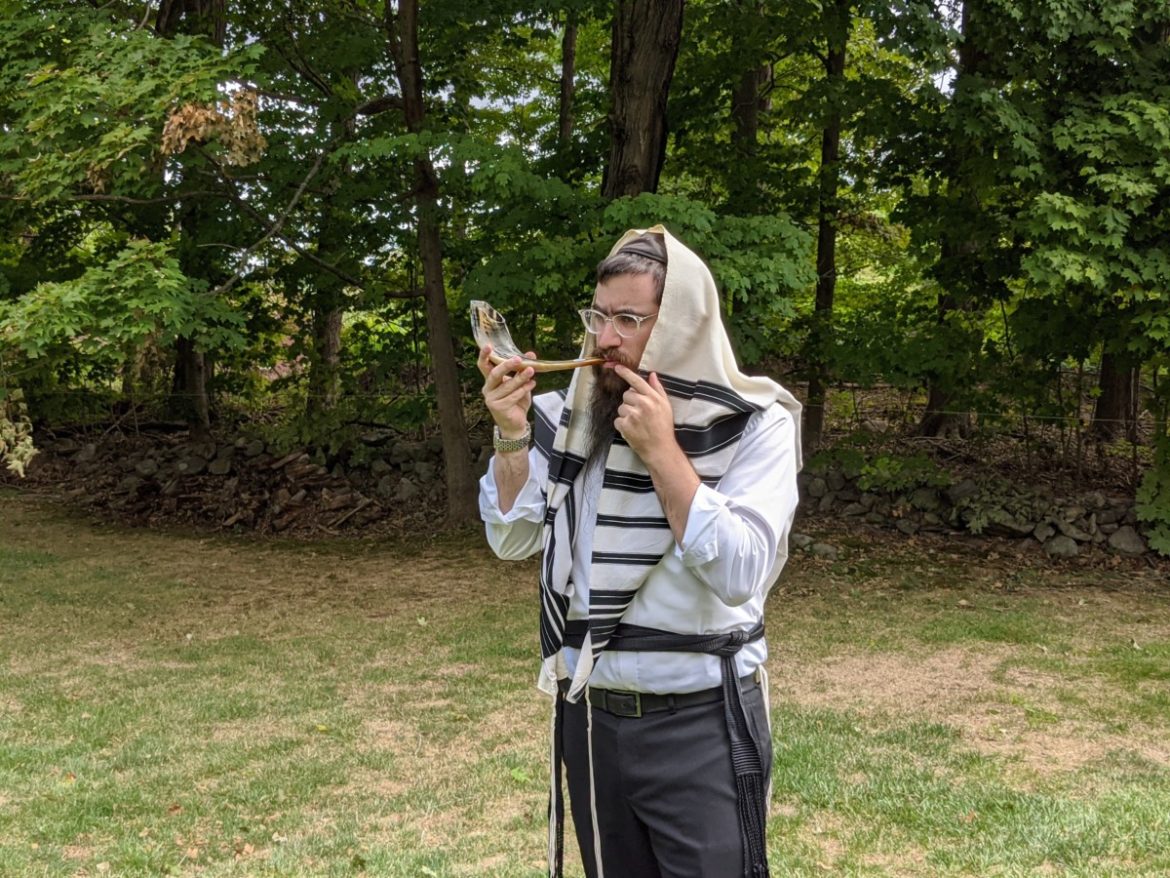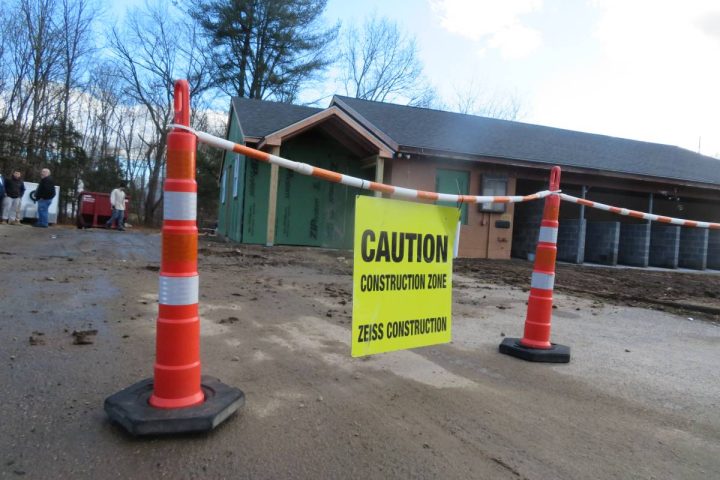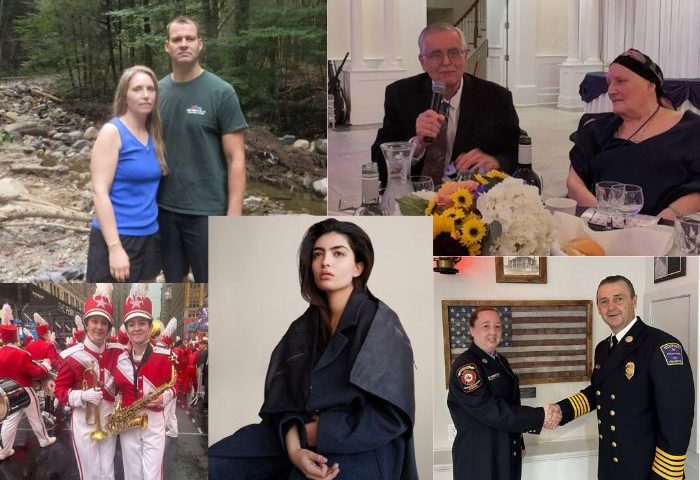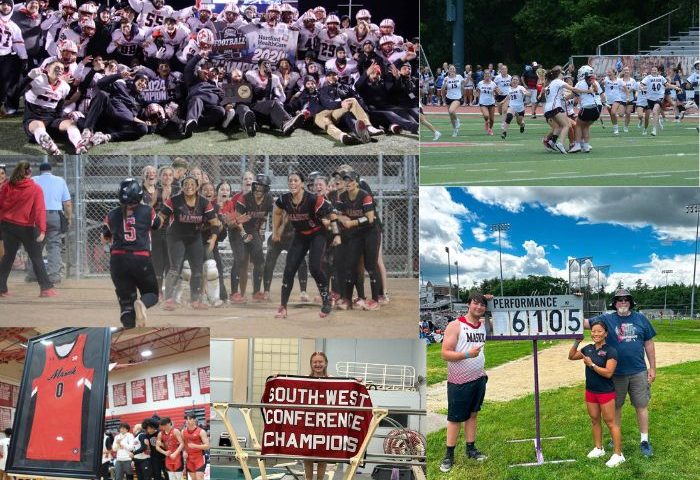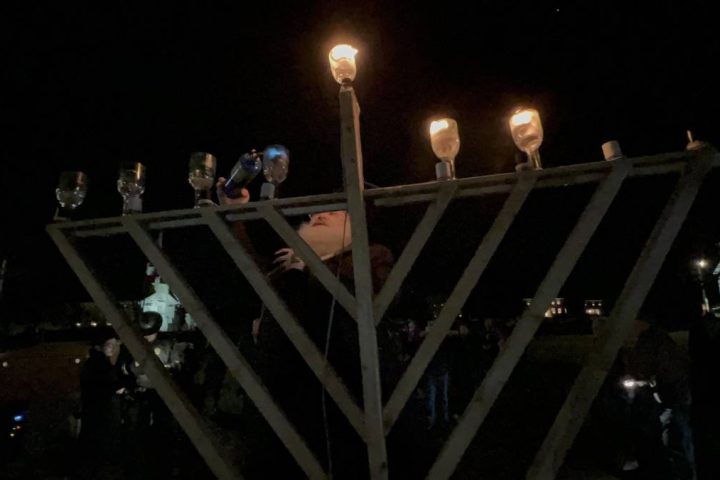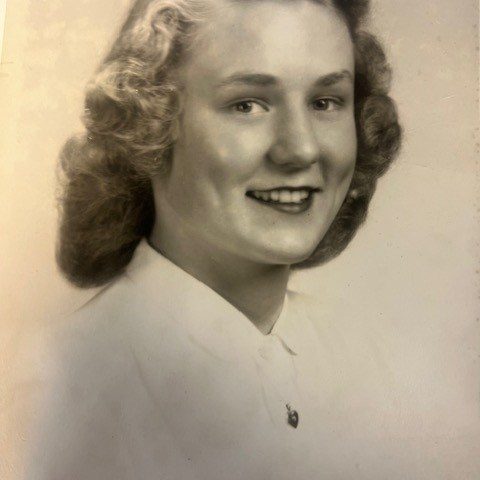SHELTON, CT — With the High Holidays approaching and COVID-19 creating difficulties for many in joining a traditional synagogue service, Chabad of Shelton & Monroe will hold an outdoor Rosh Hashanah [Shofar] service on Sunday, Sept. 20, at 4 p.m. on the Huntington Green in Shelton. The service is open to all Jewish locals, no membership required.
The service, which will include prayers for the wellbeing of all humanity — a key theme of Rosh Hashanah — will also be centered around hearing the sound of the Shofar, the central observance of the holiday.
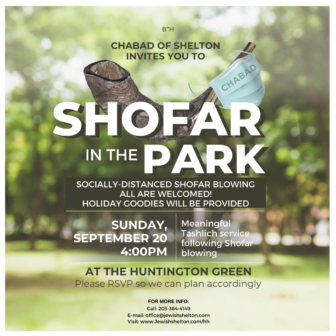 “The Rebbe, Rabbi Menachem M. Schneerson, of righteous memory, considered the most influential rabbi in modern history, insisted that the observance of hearing the Shofar — the key observance of Rosh Hashanah — be made accessible to all Jews even those not attending synagogue,” Rabbi Shneur Brook explained. “Chabad of Shelton has always prioritized making Judaism available to all. During the COVID-19 pandemic, this has taken on a whole new meaning, but our mission to serve everyone remains the same.”
“The Rebbe, Rabbi Menachem M. Schneerson, of righteous memory, considered the most influential rabbi in modern history, insisted that the observance of hearing the Shofar — the key observance of Rosh Hashanah — be made accessible to all Jews even those not attending synagogue,” Rabbi Shneur Brook explained. “Chabad of Shelton has always prioritized making Judaism available to all. During the COVID-19 pandemic, this has taken on a whole new meaning, but our mission to serve everyone remains the same.”
Chabad of Shelton also creates accessibility by creating a welcoming and non-judgmental atmosphere and affordability, with no expectation of membership or affiliation. This year, they’ve gone a step further to ensure that the very real health concerns Shelton and Monroe faces are not an impediment to holiday observance.
“Our goal is to lower the barriers of entry, and to encourage each and every Jewish person to actively participate in the observances of Rosh Hashanah,” said Leah Brook, co-director of Chabad. “This year, that means bringing a Rosh Hashanah service to a location where people can safely participate and making it free of charge as many in our community are hurting financially now.”
The 20-minute service will include the sounding of the shofar as well as a short insight into the holiday and its meaning. While not a substitute for the complete Rosh Hashanah prayer service (which can and should be done at home if one is not able to join a congregation), the service will enable everyone to hear the shofar, and bring a heightened sense of community during this difficult time.
To ensure the wellbeing of participants, those present at the event will be asked to wear masks, and stay six feet away from people not living in the same household. Additionally, individually-packed Rosh Hashanah packages will be available with some holiday treats.
 For those not able to leave their home, Chabad is offering Rosh Hashanah-at-Home kits, which will bring many of the resources that are usually enjoyed at synagogue into their homes. The kits will include a holiday guide, candles — a Yizkor candle, and traditional Rosh Hashanah treats, including honey cake and honey sticks.
For those not able to leave their home, Chabad is offering Rosh Hashanah-at-Home kits, which will bring many of the resources that are usually enjoyed at synagogue into their homes. The kits will include a holiday guide, candles — a Yizkor candle, and traditional Rosh Hashanah treats, including honey cake and honey sticks.
Chabad of Shelton will host its regular traditional High Holiday service, albeit with a more limited crowd and distanced, on Sept. 19 and 20 at 10 a.m. at Chabad’s backyard in a large outdoor tent. As COVID-19 has changed the way people gather to worship they will be holding services outdoors, with limits on attendance and safety protocols to keep everyone safe while praying for the year ahead.
For information, call Chabad of Shelton & Monroe at 203-364-4149, send an email to [email protected] or visit www.JewishShelton.com/highholidays.
About Chabad of Shelton & Monroe
Chabad offers Jewish education, outreach, and social-service programming for families and individuals of all ages, backgrounds and affiliations. For more information visit www.JewishShelton.com
About Rosh Hashanah
Rosh Hashanah, the Jewish new year, begins this year at sundown on September 18 through nightfall on September 20. Literally meaning “head of the year,” the two-day holiday commemorates the creation of the world and marks the beginning of the Days of Awe, a 10-day period of introspection and repentance that culminates in the Yom Kippur holiday. For more information about Rosh Hashanah, visit www.jewishshelton.com/HighHolidays.
About the Shofar
The shofar is the central symbol of Rosh Hashanah, which is celebrated near the beginning of each fall. Synagogues blast the shofar every day for a month leading up to the holiday, culminating with a sequence of 100 blasts during the Rosh Hashanah services, which take place this year on September 20. The cry of the shofar is a call to repentance as Jews look back at misdeeds of the past year and resolve to improve during the coming one.
NOTE: The shofar is only sounded on Sunday, September 20. While Rosh Hashanah services will also take place the preceding day — Saturday, September 19 and the evening of Friday, September 18— the Shofar is not sounded then, as its use is actually prohibited on Shabbat.

